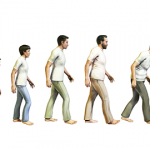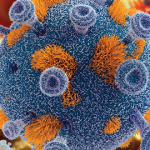But if you choose not to run, consider walking fast. A detailed meta-analysis of nine previous longitudinal cohort studies of adults aged 65 and older found that gait speed is the index that correlates strongest with survival. A speed exceeding 0.8 m/s predicted longevity exceeding the median for age and sex.7 So rest easy, Sir Mick. I clocked you at an impressive 2.6 m/s onstage. Keep on rocking!
Dr. Helfgott is physician editor of The Rheumatologist and associate professor of medicine in the division of rheumatology, immunology, and allergy at Harvard Medical School in Boston.
ad goes here:advert-1
ADVERTISEMENT
SCROLL TO CONTINUE
References
- Goto M. Inflammaging (inflammation + aging): A driving force for human aging based on an evolutionarily antagonistic pleiotropy theory? BioSci Trends. 2008;2:218-230.
- Franceschi C, Capri M, Monti D, et al. Inflammaging and anti-inflammaging: A systemic perspective on aging and longevity emerged from studies in humans. Mech Ageing Dev. 2007;128:92-105.
- Goronzy JJ, Fujii H, Weyand CM. Telomeres, immune aging and autoimmunity. Exp Gerontol. 2006;41:246–51.
- Crowson CS, Liang KP, Therneau TM, Kremers HM, Gabriel SE. Could accelerated aging explain the excess mortality in patients with seropositive rheumatoid arthritis? Arthritis Rheum. 2010;62:378-382.
- Sebastiani P, Perls TT. The genetics of extreme longevity: Lessons from the New England centenarian study front. Gene. 2012;3:277.
- Chakravarty EF, Hubert HB, Lingala VB, Fries JF. Reduced disability and mortality among aging runners. A 21-year longitudinal study. Arch Intern Med. 2008;168:1638-1646.
- Studenski S, Perera S, Patel K, et al. Gait speed and survival in older adults. JAMA. 2011;305:50-58.



